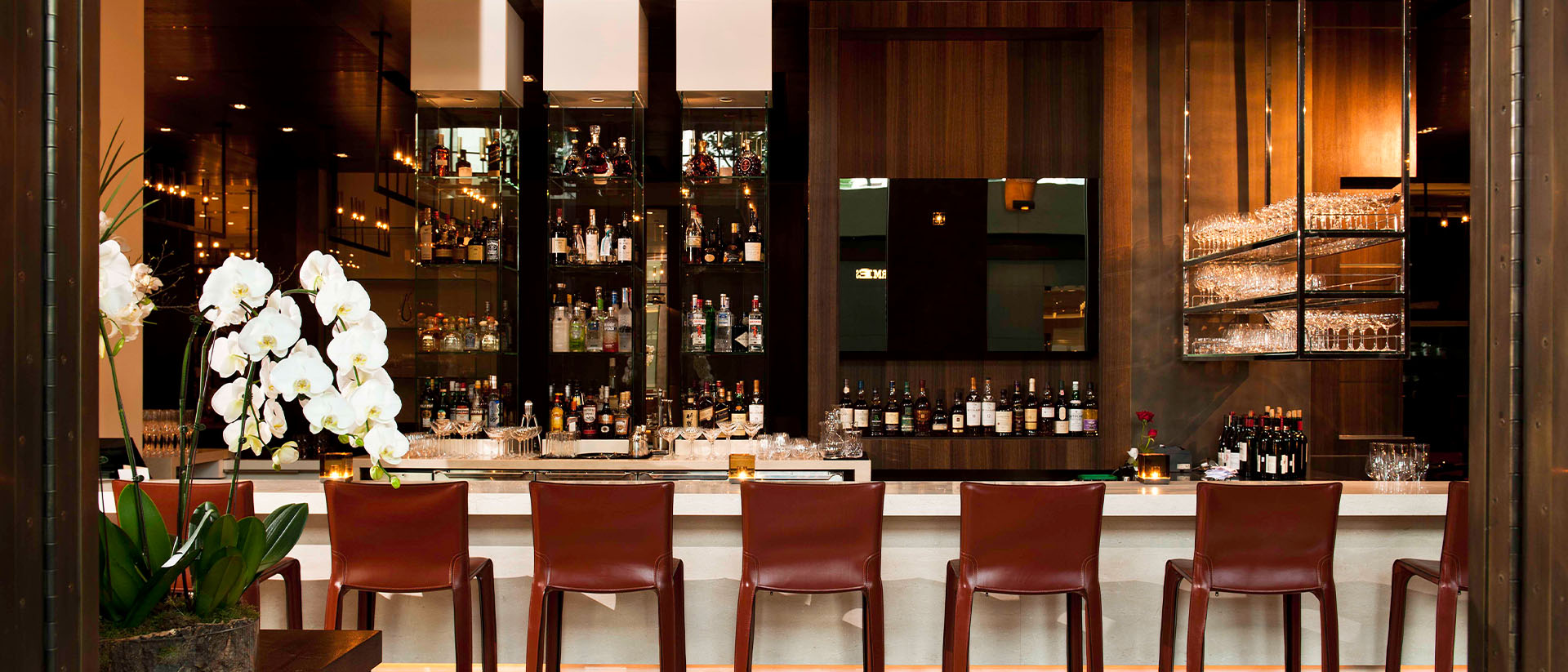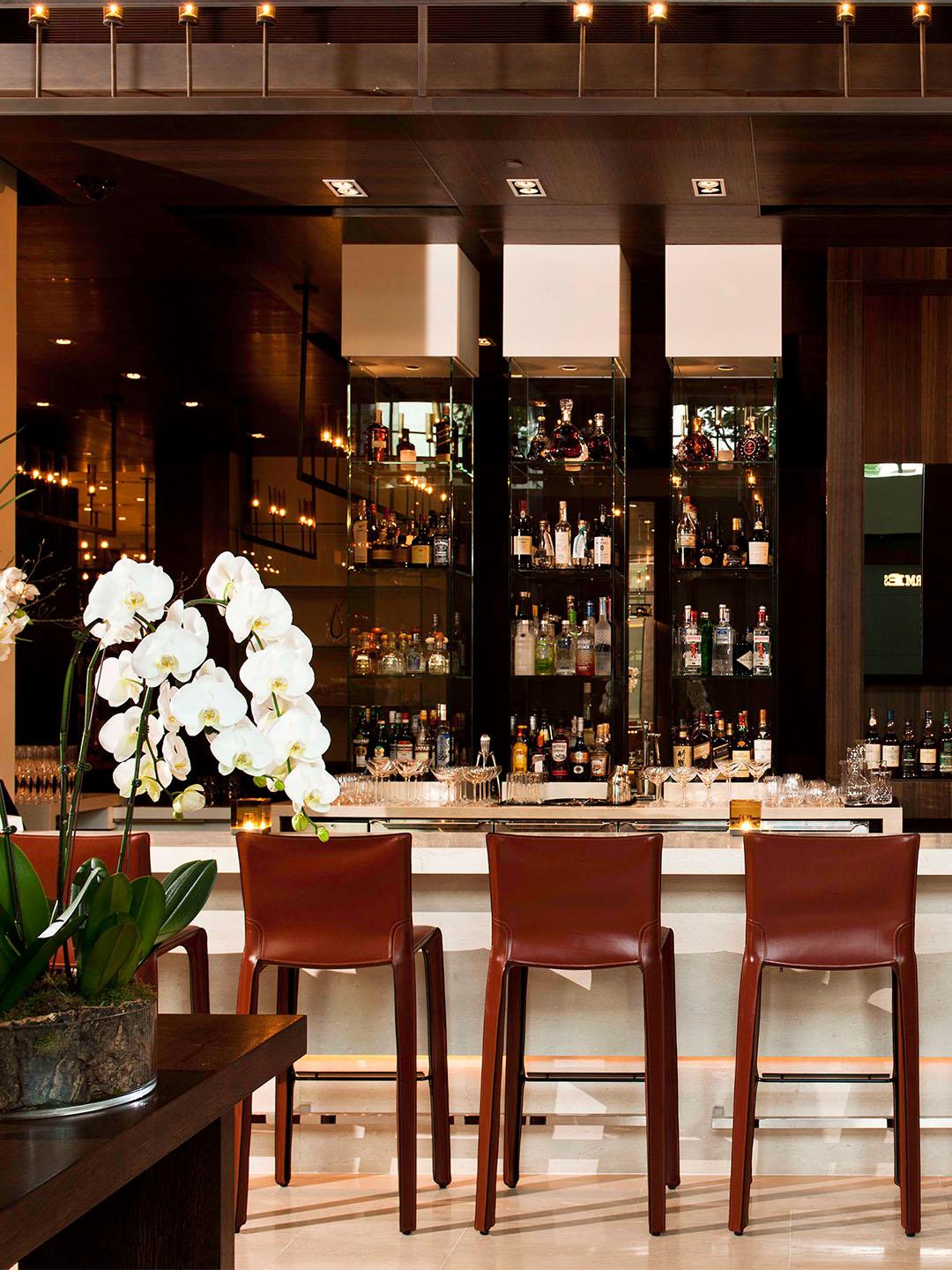Guide to MICHELIN Restaurants in Singapore
The word “MICHELIN” has two meanings to people – one, a respected tyre company and two, the definitive source for exceptional culinary experiences across the globe with its ‘MICHELIN Guide.’
In this article, we cover the mechanics of the MICHELIN rating system, along with some MICHELIN Star restaurants in Singapore.
The Michelin Guide

The MICHELIN Guide was first published in the early 1900s to boost tyre sales by encouraging riders and drivers to be on the road for longer periods of time. This guide, originally given away for free, included useful information for travellers, such as fuel stations, maps, tyre-changing tips, and a list of places to sleep or eat at during their journey.
The founding Michelin brothers realised the rising significance of the restaurants’ section within their guide, and decided to employ diners to visit and review places anonymously. This unique guide now lists ratings for over 30,000 establishments in 30+ territories across three continents. More than 30 million MICHELIN Guides have been sold worldwide to date.
The MICHELIN Star Rating System
The Star system was first introduced by MICHELIN in 1926. For 7 years, eligible restaurants could earn 1 Star for being “a very good restaurant.” It was only in 1933 that MICHELIN introduced the 2 Star award to denote "excellent cooking that is worth a detour," and the 3 Star award for restaurants that offered an "exceptional cuisine that is worth a special journey".
One Star
According to the MICHELIN Guide, restaurants with One Star are worth a stop and have a high-quality cooking standard. Though it is the lowest of the awards, earning even a single MICHELIN Star is a worthy accolade. The best way to earn a star is by crafting a quality menu and preparing great dishes consistently.
Two Stars
Rarer than ‘One Star’ dining establishments, there are only about 450 restaurants in the entire world that have been honoured with two stars by MICHELIN inspectors.
Owned by some of the best chefs in the world, two-MICHELIN-starred restaurants consistently deliver top-quality food and are likely to be well-known in the world of fine dining. The cuisine on offer at two-star dining places is so delightful that the MICHELIN Guide deems it worthy of a detour.
Three Stars
The MICHELIN Guide lists three-star fine dining places as those with exceptional cuisine that are worth a special journey. Only about 135 restaurants worldwide have been awarded with three stars.
The crème de la crème of restaurants worldwide, three-star establishments are at the pinnacle of fine dining and offer once-in-a-lifetime dining experiences. These restaurants are managed by world-renowned chefs with exceptional culinary expertise. Such restaurants are always in high demand, boasting month-long table reservation schedules.
MICHELIN Star Inspection & Assessment Process
To ensure the integrity of opinions and the credibility of the Guide, MICHELIN’s restaurant inspectors need to maintain anonymity throughout their service period. They visit the shortlisted restaurants as normal diners without any prior invitation and pay for their own meals to avoid preferential treatment. Food experts wanting to become restaurant inspectors are trained at the official MICHELIN Guide training in France.

MICHELIN’s inspectors use 5-point criteria to award Stars to deserving dining places. The criterion includes the quality of the ingredients used, mastery of flavour and cooking techniques, personality of the chef in his cuisine, its overall value for money, and the consistency between visits.
Since the assessment criteria is based solely on the quality and taste of the food, MICHELIN’s inspectors never consider the décor or the service quality of the restaurant before awarding them a Star.

Dining establishments, however, can get a ‘fork and spoon’ symbol from MICHELIN inspectors based on their unique ambience, and/or their outstanding customer service. Some other MICHELIN awards include the Bib Gourmand and The Plate.
The MICHELIN Guide also acknowledges restaurants based on regional and local variances. For example, UK/Ireland based pubs are recognised by beer mug symbols, whereas tapas bars in Spain can be distinguished by a ‘wine and toothpick’ symbol.

MICHELIN Star winning restaurants are often reinspected to ensure that their high standards are maintained.
Restaurants can lose their Star status if the food quality dips during subsequent visits. Unlike dining establishments, individual chefs cannot win MICHELIN Stars. Chefs who run multiple restaurants (in different cities or countries) can then technically hold more than three stars.
Singapore’s Best MICHELIN Star Restaurants
On the official MICHELIN Guide website, Singapore has over 250 dining establishments that include restaurants, street stalls, and hawker stalls. Marina Bay Sands houses two of these: Waku Ghin by Tetsuya Wakuda and CUT by Wolfgang Puck.
Waku Ghin by Tetsuya Wakuda
One Michelin Star Restaurant
Established and run by celebrity chef Tetsuya Wakuda, the one-MICHELIN-starred Waku Ghin is one of Singapore’s favourite Japanese restaurants. Their much-loved, highly celebrated dining experience is a pleasing amalgamation of freshly sourced ingredients and Japanese culinary craftsmanship.
For a more intimate dining experience with your loved ones, you can book a private room in advance. Diners seeking an exhilarating gustatory experience can explore the exclusive 10-seater Chef’s Table, loaded with seafood, seasonal specials, and premium beef cuts. Dishes worth trying out include: Marinated Botan Shrimp with Sea Urchin and Oscietra Caviar, Braised Canadian Lobster with Tarragon, and Japanese Ohmi Wagyu Sukiyaki with Grilled Japanese Leek and Shishito.

Savour a drink at this wine restaurant in Singapore by choosing from their extensive range of handcrafted Japanese-style cocktails, meticulously sourced wines, or premium sake collections to complement your meal.

CUT by Wolfgang Puck
One Michelin Star Restaurant
True steak connoisseurs of Singapore laud the highly acclaimed, One MICHELIN Star restaurant, CUT. For five consecutive years, CUT has proudly held onto its One MICHELIN star, a glowing endorsement to excellence and consistency. With a growing list of accolades and reviews, CUT truly stands as one of the best steakhouses in Singapore.
Helmed by superstar chef Wolfgang Puck, CUT is also regarded as one of the top-rated Wagyu beef restaurants in Singapore. With an exquisite selection of beef, expertly grilled over charcoal and apple wood, diners can savour premium cuts like Australian Angus, Wagyu from Japan and the US, and the authentic Japanese A5 Wagyu from Sendai Prefecture. Some of its must-try dishes includes the Bone Marrow Flan, the New York Sirloin, and the Rib Eye Steak.

CUT is constantly reinventing its dining experience, shown in its recently expanded menu of innovative seafood dishes. The region's freshest produce are used, featuring sustainably sourced oysters from New Zealand, handpicked abalones from Jeju Island and supersized Alaskan king crabs. Dishes like the king crab leg gratin with Kaluga caviar offers a harmonious balance of flavour and texture without overpowering the natural sweetness of the king crab, a manifestation of CUT's dedication to culinary excellence.
As the nation's beloved seafood restaurant and steakhouse, CUT is a MICHELIN Star restaurant not to be missed.

Michelin Selected Restaurants in Singapore
Home to the city's most noteworthy culinary gems, the food scene at Marina Bay Sands continues to impress with its selection of fine dining restaurants. With three restaurants recognised by the 2025 Michelin Guide, let your tastebuds lead the way through Singapore's most celebrated kitchens.
Wakuda Restaurant & Bar
As Recommended in the 2025 MICHELIN Guide
Nestled within Marina Bay Sands, Wakuda Restaurant & Bar is born from a partnership between chef Tetsuya Wakuda and restaurateur John Kunkel of 50 Eggs Hospitality Group. A culinary haven that is inspired by Shinjuku’s unmatched energy, Wakuda brings a new dimension to Japanese dining.
Beyond its star-studded collaboration, Wakuda’s accolades speak volume. From a coveted spot in the MICHELIN Guide to the Wine Spectator Best of Award of Excellence (2023–2025), these achievements solidify its reputation as one of the best Japanese restaurants in Singapore.

Whether you’re celebrating a special occasion or seeking a romantic dinner for two, Wakuda promises an unforgettable adventure. Delight in the Premium Sushi Omakase with Sake & Wine Pairing featuring nine meticulously crafted pieces of Nigiri sushi and sake pairings to enhance the flavours on the plate. Revel in a cascade of flavours and you continue your omakase journey with signature creations like the Japanese Ohmi Wagyu Beef and Chef Tetsuya’s Classic Carabinero Prawn.

Maison Boulud by Daniel Boulud
As Recommended in the 2025 MICHELIN Guide
Choose your perfect setting and dine alfresco by the waterfront where scenic views set the tone or unwind in the plush interior of Maison Boulud. Led by chef Daniel Boulud, Maison Boulud brings timeless French cuisine to life.
Savour classic French dishes like the tender Duck Confit slow-cooked to perfection and the soul-warming Coq Au Vin that is braised in red wine and aromatic herbs. Lobster Roll is a standout dish for those craving for inventive creations. Featuring succulent lobster tucked into a buttery roll that is layered with creamy avocado, this indulgent dish offers a playful twist on a classic.

Weekend brunch at this MICHELIN Selected french restaurant promises a feast with an extensive selection of dishes. Indulge in the beloved Lobster Eggs Benedict, topped with silky hollandaise, or savour the delicate Confit Chilean Sea Bass that promises to tantalise your tastebuds. Whisk away to French Riveria as you sip on a glass of champagne, a perfect companion to your brunch.

Spago Dining Room
As Recommended in the 2025 MICHELIN Guide
Perched 57 storeys above, Spago Dining Room offers a dining experience that is as breathtaking as its panoramic views. Having been awarded Forbes Travel Guide: Four-Star Restaurant (2017 – 2025) for 9 consecutive years, this rooftop gem delivers a cosmopolitan flair.
Delicate yet bold, the Big Eye Tuna Tartare Cones is a signature starter that features premium big eye tuna, gently seasoned with chili aioli, soy, wasabi, shaved bonito, scallions and masago. Relish the Honey Miso Broiled Chilean Seabass where the fish’s buttery texture is elevated by a glaze of honey and umami-rich miso.

Those seeking a taste of Singaporean flavours with a twist can explore “Kaya Toast”, a reinterpretation of the beloved breakfast staple featuring seared foie gras, pandan-coconut jam and toasted brioche. The Sea Bream “Laksa” is Spago’s inventive take on a local classic. Poached sea bream sits atop rice noodles, bathed in aromatic laksa broth that is infused with lemongrass, coconut milk and a variety of spices.

Updated as of 4 Sep 2025
Explore a list of things to do in Singapore this weekend and visit Marina Bay Sands to indulge in some of the best restaurants in Singapore. Immerse yourself in one-of-a-kind travel experiences with our travel guide while staying in a 5 star hotel in Singapore.
Enjoy valuable member privileges when you sign up for a Sands Lifestyle membership. Earn Resort Dollars when you dine at Michelin star restaurants in Singapore like Waku Ghin by Tetsuya Wakuda or CUT by Wolfgang Puck, and redeem them at our participating outlets.







